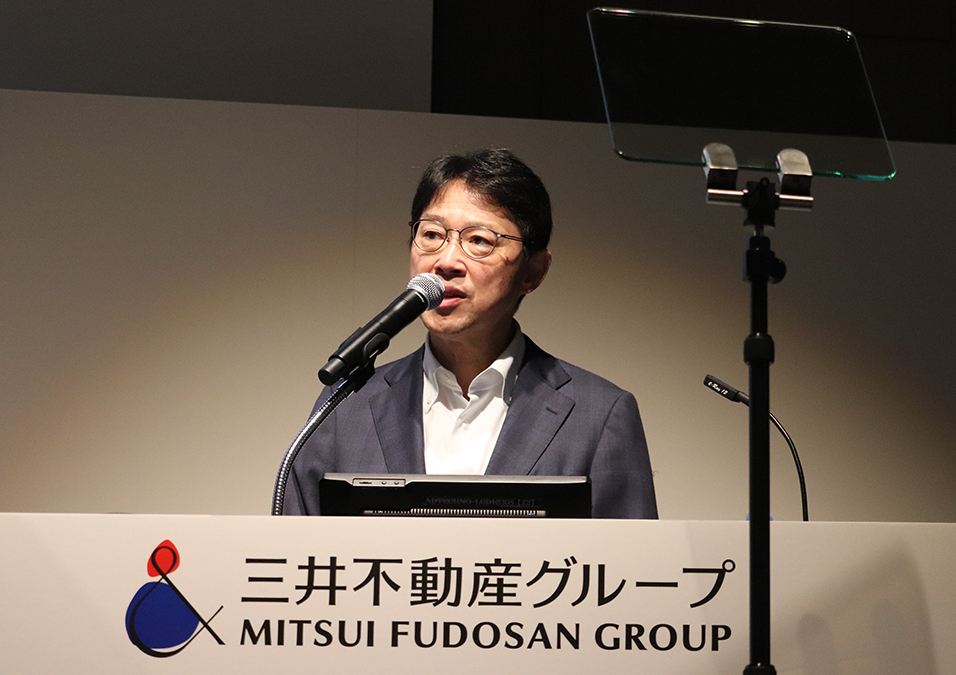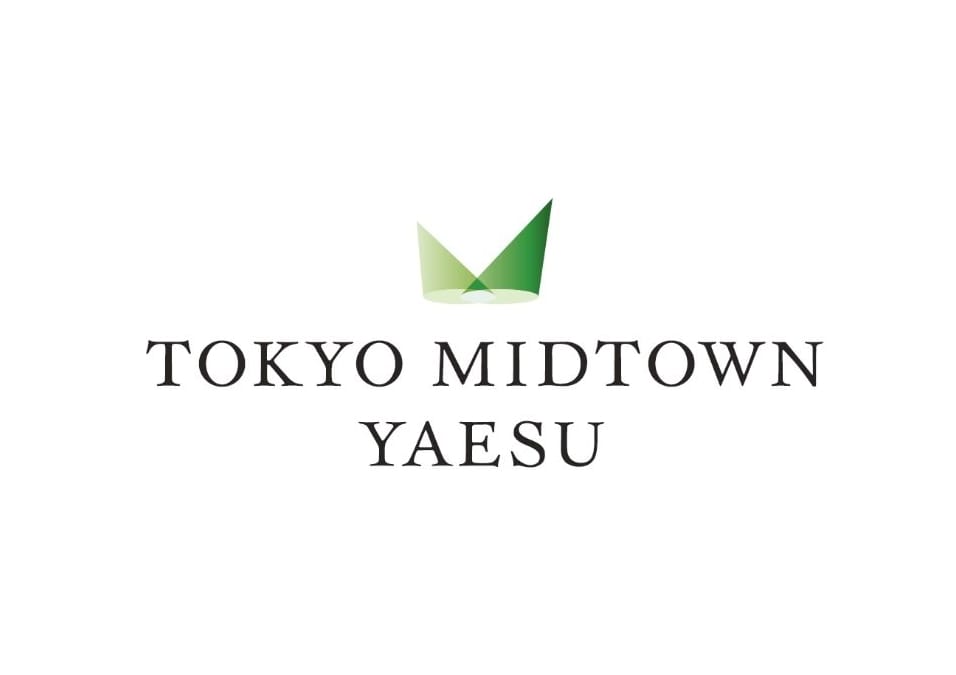Framework
Under the Executive Management Committee, which supervises overall risk management for the Group, the Strategy Planning Special Committee and the Risk Management Special Committee manage business risk and administrative risk respectively.
The Managing Director acts as the person in charge of legal affairs and compliance, the Chief Risk Officer, the Chief Legal Affairs Officer, and the Chief Officer for Compliance, and he or she belongs to the Board of Directors and Risk Management Special Committee, is assigned oversight responsibility, and periodically reports on risk management, including for human rights risks, to the Board of Directors.
To promote measures aimed at addressing sustainability issues, and in accordance with company rules, we have established the ESG Promotion Committee (headed by the President and Chief Executive Officer) and under it the ESG Management Committee (headed by the Director of the Sustainability Promotion Division). In each department, we have appointed a group leader responsible for ESG issues, and their role is to actively promote awareness of, and share information about, human rights and other sustainability issues within their departments, and relevant businesses and Group companies. At present, alongside expanding human rights due diligence, we are investigating how to put in place mechanisms to deal with complaints, including through cooperation with our internal consultation service.
Establishment of an Internal Consultation Service
The Company has established internal contact points for consultation. These can be used by regular employees, and anyone engaged in work for our company based on an individual labor contract (contract employee), temporary transfer agreement, worker dispatch contract, part-time contract, or other agreement. Two contact points, internal and external, have been established, and workers can consult with either. The external contact point is provided at a law office, and it accepts consultations from a neutral standpoint,*1 notifies the Company of the consultation content, and encourages a response.
Topics for consultation include: wrongful conduct violating laws, regulations, internal rules, general social norms, or corporate ethics, sexual harassment, abuse of power, other forms of harassment, employment problems, and issues with the workplace environment.*2 The privacy of those who engage in consultation is protected, and there is never any retaliatory action or disadvantageous treatment due to such consultations in terms of personnel decisions. Consultations can be conducted under a real name, or anonymously.*3
*1: Representatives of the law office cannot provide legal opinions as lawyers, or take a stance protecting the consulting person.
*2: Simple expressions of opinion, dissatisfaction with personnel decisions, defamation of others, and similar issues cannot be the subject of consultation.
*3: To achieve early discovery and response to compliance problems-the original purpose of the system-the consulting employee's standpoint and other information are confirmed even in the case of an anonymous consultation.
Major Initiatives (Human rights due diligence)
When formulating our Human Rights Policy, in order to narrow down major issues related to human rights, we designated and evaluated human rights risks. In each business segment, we select issues related to our activities or business dealings that would infringe human rights of any of the stakeholders. We refine issues down to major human rights issues (human rights risks) specific to our Group, based on their severity according to the UN Guiding Principles and the likelihood of their occurrence. We also determined four levels of priority for initiatives informed by the scope of the relevant organization and the ease *1 with which we could minimize human rights risks. In the future, too, we will assess risks related to human rights issues (human rights risks) on an on-going basis, and review their priority levels, among other methods of continuous risk management.
*1: Considering, among other factors, the importance of dealings with the Mitsui Fudosan Group to the companies we work with from the standpoint of business transactions. For instance, for business partners whose main business is contract work for the Group, it would be relatively easy for us to affect the human rights measures being undertaken for employees of the business partner.
Human rights impact evaluation
Human Rights Due Diligence
In 2020, we started human rights due diligence in accordance with the UN Guiding Principles on Business and Human Rights. As a supplement to the Human Rights Policy, we designated major issues related to human rights.
For more detailed information about the Salient issues related to human rights initiatives, please refer to the following link.
⇒ https://www.mitsuifudosan.co.jp/esg_csr/society/03.html
We are continuously evaluating their impact on human rights, and putting in place initiatives to prevent or minimize their impact, and will continue monitoring.
Human rights impact evaluation
Human rights impact evaluation is carried out for new and existing groupwide business (predominantly in Japan) in the manner detailed below. This evaluation also covers human rights issues that relate to labor problems or health and safety. When evaluating impact, we also took advice from Akiko Sato, an attorney. We will ensure that in the future, too, we will continue to have such opportunities to gather feedback periodically.
To select major human rights impacts, we investigated the impact of issues related to our activities or business dealings that would infringe human rights of any of our stakeholders in each business segment (from a total of 202 issues). In line with their severity according to the UN Guiding Principles, and other factors, we narrowed the list down to a total of 42 important human rights issues (human rights impacts) unique to our business.
Sample of impact on stakeholders and human rights
Refining by severity and probability
Survey into the status of initiatives to address human rights issues in our business
As part of the Mitsui Fudosan Group's human rights due diligence, in FY2022, we carried out a questionnaire survey into initiatives to respect human rights at four divisions and ten group companies (as well as interviews at a group company).
The questionnaire looked into 15 issues-those strongly relevant to the work of the divisions and group companies taken from 42 human rights issues identified during the formulation of the Mitsui Fudosan Group Human Rights Policy-and surveyed internal systems to prevent human rights violations, awareness of manuals and procedures, status of training, etc.
Human rights risks and future issues in business operations
Based on the results of the survey, we identified risks we anticipate in each business segment, and we referred to the status of actual initiatives to designate high-risk items.
Each related department or group company will investigate future issues for each item, and will work to address these.
Interviews with foreign technical intern trainees
In March 2023, we interviewed technical intern trainees from the Philippines working as cleaners at a group company (Mitsui Fudosan Facilities) about the following topics to investigate human rights issues as they relate to foreign trainees.
- Normal lifestyles
- Work
- Details of their lives up to coming to Japan
- Clarity of labor criteria/treatment during recruitment and contract signing
- Consultations when they have encountered issues in their normal work or personal lives
- Other (passport safekeeping, contract penalties, evacuation plans for an earthquake, medical checkups, etc.)
We did not discover any particular human rights problems, but one thing that became clear was the importance of having someone around them to talk to about concerns in their work and personal lives arising from language issues or similar. Going forward, we will work to create a system that can support trainees by utilizing external consultation services such as JP-MIRAI.
Supply chain engagement
After we identified significant impacts regarding human rights risks that the Group's business poses to communities, we conduct supply chain questionnaire surveys and on-site inspections to properly grasp the impact on suppliers of important issues that relate to human rights and to investigate measures to prevent or minimize this impact.
FY2021: Regarding construction sites that are considered to have the most significant impact on human rights risks, we conducted a questionnaire on overall ESG initiatives, including those related to human rights, with six construction companies, and undertook construction site inspections at two. From next year onward, in order to strive to reduce human rights risks, we continue to implement engagement with stakeholders by expanding the number of target companies and worksites.
FY2022: We conducted a questionnaire with six building operation and management contractors, and undertook on-site inspections at two companies' operation sites. We also conducted a questionnaire with around 200 tenant companies at our commercial facilities.
FY2023: We administered questionnaires to 106 construction and other companies and undertook construction sites inspections at two companies. We also conducted interviews and encouraged future initiatives and improvements based on the questionnaire results.
FY2024: We engaged with seven advertising agencies through questionnaires or interviews on their efforts to reduce human rights risks.
(See "Supply Chain Management" for more details)
⇒ https://www.mitsuifudosan.co.jp/english/esg_csr/society/04.html
Participation in the Construction and Real Estate Human Rights Due Diligence Promotion Council
In December 2023, we joined the Construction and Real Estate Human Rights Due Diligence Promotion Council. Our aim is to fulfill the responsibilities required of companies under the United Nations’ Guiding Principles on Business and Human Rights through the initiative of, and coordination among, companies in the construction and real estate industry facing the same challenges. Working cooperatively with our same-sector counterparts and construction companies, we will share the details of human rights due diligence-related initiatives, survey and study the leading examples of those initiatives, and pursue stakeholder engagement, among other action.
Stakeholder engagement on business and human rights
(conducted on February 19, 2024)
Akiko Sato, an attorney who serves as Liaison Officer, Business and Human Rights at the United Nations Development Programme (UNDP), has provided her feedback below on the Group’s business and human rights initiatives. We will incorporate her advice as much as possible into our future initiatives.
She also gave us feedback in 2020 and 2021. We have been striving to improve human rights due diligence.
(For details, refer to “Stakeholder engagement to designate issues that impact on human rights”)
⇒ https://www.mitsuifudosan.co.jp/corporate/esg_csr/pdf/2023/mf_esg2023_all.pdf
Expectations for the Mitsui Fudosan Group's initiatives for business and human rights
Feedback:
About incorporating the respect for human rights into corporate activities
-
The Group needs to take prevention and mitigation measures against human rights risks identified by questionnaires, following the UN Guiding Principles on Business and Human Rights. In addition, if any of its activities are associated with human rights violations, the Group needs to provide remedies for such activities.
-
The Group should incorporate human rights due diligence as a system in its corporate governance. The goal is to integrate and enhance human rights due diligence awareness throughout the group's business activities, including its divisions' existing business operations, new business development, and the conclusion of contracts with or considering new business partners.
-
Given that climate change/biodiversity and human rights issues are interconnected, the Group should consider creating synergies in working on them. For example, the solar panel business may have the risk of forced labor in its process of producing parts. In addition, natural disaster risks are directly connected to human rights risks, such as those concerning the housing and health of local communities. When working on urban development, the Group should look at risks comprehensively centered on human rights, covering climate change and biodiversity.
About gaps between Japanese domestic laws and international human rights norms
-
Where there is a gap between Japanese domestic laws and international human rights norms, the Group should aim to meet standards that the norms require in line with the Guiding Principles. For example, the Group needs to be aware of gaps between Japanese domestic laws and international human rights norms in achieving living wages and addressing gender and sexual minority issues. One company may not be able to resolve these challenges by itself, but the Group should consider what it can do through human rights due diligence on an ongoing basis.
-
When setting up operations abroad, observing local laws and regulations may not be enough to safeguard the human rights of workers in line with international human rights norms, for example. The Group needs to recognize such gaps as human rights risks and work on them. In addition, forced relocations caused by property development, even when implemented with development permits by local governments and following prescribed administrative procedures, are often problematic from the perspectives of human rights norms and those of rights holders and NGOs. Companies are expected to be responsible for carefully confirming whether they have sufficiently addressed human rights risks.
Relief Mechanism Initiatives
We are also working to establish a redress mechanism for supply chain workers as part of our consideration of remedying "negative impacts" as stipulated in the UN Guiding Principles on Business and Human Rights.
JP-MIRAI (Platform for Responsible Recruitment of Foreign Workers) to handle foreign worker relief
In April 2022, we joined JP-MIRAI (Japan Platform for Migrant Workers towards Responsible and Inclusive Society)*, which addresses relief for foreign workers.
As part of efforts to build a relief mechanism, we have participated in its Collaborative Program for Companies Responsibly Hosting Foreign Migrant Workers. We use its integrated mechanism, which include providing information on foreign workers in domestic supply chains, providing multi-language consultation services, and providing independent and neutral dispute resolution.
We use information sent from JP-MIRAI on human rights violation risks concerning foreign workers to enhance supply chain management and human rights due diligence. For starters, we have started using the mechanism for our foreign technical intern trainees at our major group companies. In the future, we intend to expand the scope through consultation with companies in our supply chain.
* JP-MIRAI began its activities as a voluntary organization by various stakeholders in November 2020 with the objective of resolving issues concerning foreign workers in Japan. In June 2023, JP-MIRAI became a general incorporated association to enhance its implementation structure.
(For details, see: https://jp-mirai.org/jp/)
Participation in Foreign Workers Consultation and Relief Pilot Project
As part of our initiatives to establish a relief mechanism, we are participating in the "Foreign Worker Consultation and Relief Pilot Project" launched by JP-MIRAI in May 2022. This project is the first of its kind in Japan to package an integrated mechanism from provision of information to foreign workers, a multilingual consultation service, and independent and neutral dispute resolution, as well as feedback of human rights risks to companies. The following are some of the benefits of the program for foreign workers of participating companies and related companies in the supply chain: (1) information through a portal site for foreign workers, (2) a low-hurdle consultation service in nine languages, (3) support for problems that are difficult for foreign workers to solve on their own, and (4) use of an out-of-court Alternative Dispute Resolution (ADR) mechanism in the event of a dispute. This is a project to analyze issues faced by foreign workers based on data collected in the provision of services. Our company is working to strengthen its supply chain management and human rights due diligence by utilizing the human rights violation risk information regarding foreign workers provided by JP-MIRAI. We will begin using the system for foreign technical intern trainees from our main group companies, and plan to expand the scope of use of the system in the future through discussions with each supply chain company.


































